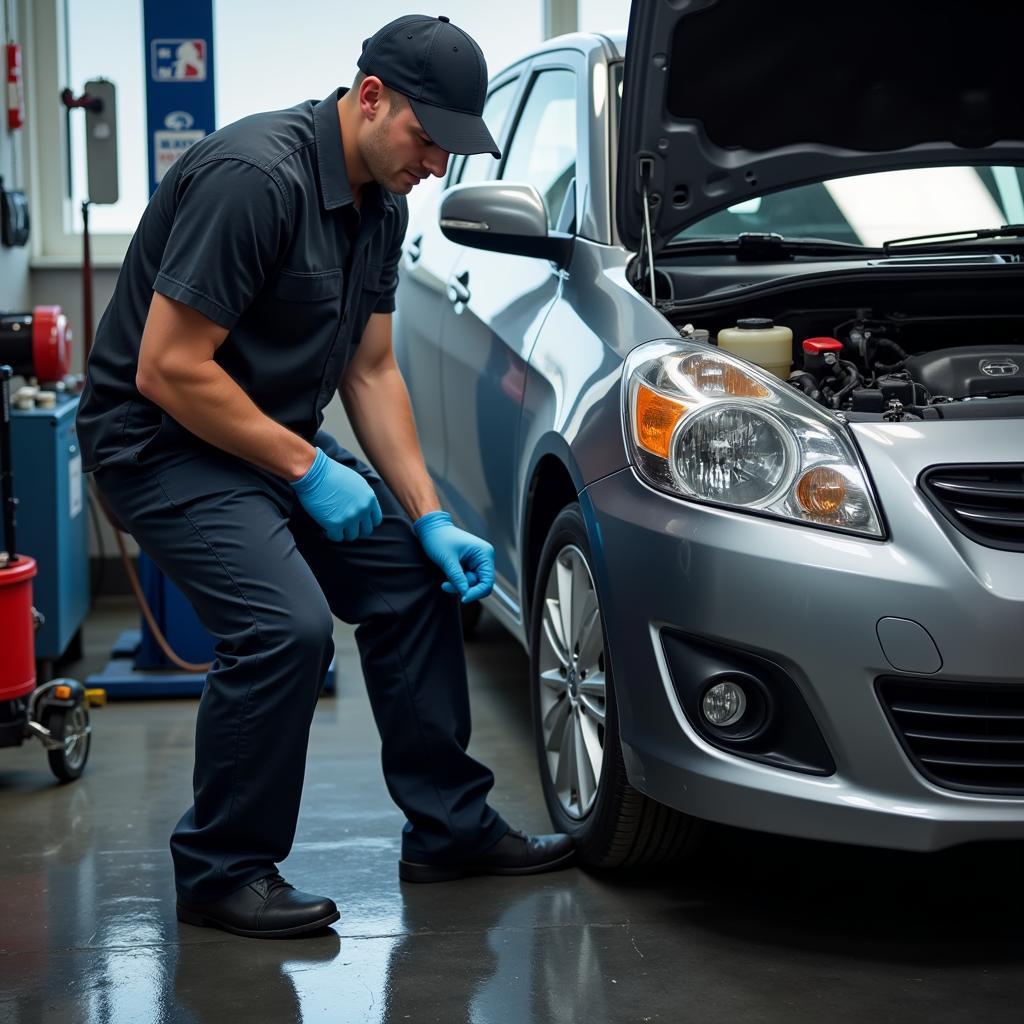Maintaining your car can feel like a chore, but it’s crucial for its longevity, performance, and your safety. But how often do you really need to schedule those maintenance appointments? The answer isn’t one-size-fits-all.
While traditional wisdom used to dictate car maintenance every 3,000 miles, modern vehicles and advancements in oil technology have rendered that advice outdated. Today, most car manufacturers recommend a maintenance schedule based on mileage or time intervals, whichever comes first. This typically translates to service visits every 5,000-7,500 miles or every 6-12 months.
However, this is just a general guideline. Your car’s specific needs may vary depending on several factors:
Factors Influencing Your Car Maintenance Schedule
1. Driving Conditions: Frequent stop-and-go city driving, driving in extreme weather conditions (heat, cold, dust), or towing heavy loads put more strain on your vehicle, necessitating more frequent maintenance.
2. Vehicle Age and Mileage: As cars age, components wear down, requiring more attention. Older vehicles may benefit from more frequent checkups than their newer counterparts.
3. Driving Style: Aggressive driving habits like hard braking and rapid acceleration can lead to faster wear and tear, potentially requiring more frequent maintenance.
4. Vehicle Type: High-performance cars or those with complex systems may have more demanding maintenance requirements.
 Car undergoing maintenance
Car undergoing maintenance
Deciphering Your Car’s Maintenance Schedule
The best way to determine the ideal maintenance schedule for your car is to consult your owner’s manual. It outlines the manufacturer’s recommendations for your specific make and model, taking into account the factors mentioned above. The manual will detail:
-
Scheduled Maintenance Services: This section outlines routine services like oil changes, filter replacements (air, cabin, fuel), tire rotations, brake inspections, fluid top-offs, and more.
-
Service Intervals: The manual specifies the mileage or time intervals for each service.
-
Severity Levels: Some manufacturers use a system of severity levels (e.g., minor, intermediate, major) to categorize maintenance tasks, helping you prioritize based on urgency and driving conditions.
Essential Car Maintenance Tasks
While your owner’s manual is the ultimate guide, here are some essential car maintenance tasks and their general recommended intervals:
1. Oil and Filter Change: Every 5,000-7,500 miles or 6-12 months
2. Tire Rotation: Every 5,000-7,500 miles
3. Brake Inspection: Every 10,000 miles or annually
4. Air Filter Replacement: Every 15,000-30,000 miles or 1-2 years
5. Cabin Air Filter Replacement: Every 15,000-30,000 miles or 1-2 years
6. Spark Plug Replacement: (Varies greatly) Consult your owner’s manual
7. Coolant Flush: Every 30,000-60,000 miles or 2-5 years
8. Transmission Fluid Change: Every 30,000-60,000 miles (for automatic transmissions) or as recommended by your owner’s manual (for manual transmissions).
Remember, these are general guidelines. Car maintenance Columbia experts can help you determine a schedule that best suits your needs.
Warning Signs Your Car Needs Attention
Even if you diligently follow your car’s maintenance schedule, it’s crucial to be aware of warning signs that may indicate potential issues:
-
Unusual Noises: Squealing, grinding, knocking, or clicking sounds emanating from your car can be indicative of problems that require immediate attention.
-
Fluid Leaks: Puddles of fluid under your car (oil, coolant, brake fluid, transmission fluid) should never be ignored.
-
Warning Lights: Don’t ignore those dashboard warning lights. They are your car’s way of communicating potential problems.
-
Changes in Performance: If you notice a decrease in fuel efficiency, sluggish acceleration, difficulty braking, or changes in steering, your car may be trying to tell you something.
Expert Insight:
“Many car owners underestimate the importance of preventative maintenance,” says John Miller, a seasoned automotive technician with over 20 years of experience. “Following your car’s recommended maintenance schedule can help identify and address minor issues before they escalate into major, costly repairs.”
Conclusion
Regular car maintenance is an investment, not an expense. By understanding your car’s specific needs and heeding warning signs, you can ensure its longevity, performance, and your safety on the road. Remember, your owner’s manual is your best friend when it comes to car maintenance. If in doubt, always consult with a qualified mechanic or automotive technician. They can provide expert guidance and help you keep your car running smoothly for miles to come.
For reliable car maintenance and expert advice, contact AutoTipPro at +1 (641) 206-8880 or visit our office at 500 N St Mary’s St, San Antonio, TX 78205, United States. We’re here to keep you on the road!







Leave a Reply